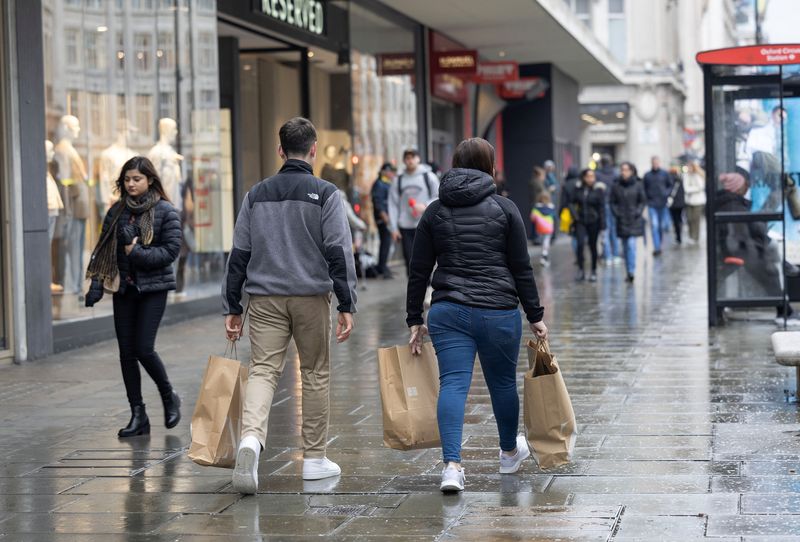By David Milliken
LONDON (Reuters) - An early Easter boosted food spending in Britain last month, lifting retail sales by the most since August, but the broader picture remained subdued as wet weather dampened demand for other goods, the British Retail Consortium said on Tuesday.
Britain's economy entered a shallow recession in the second half of last year, but more recent data have suggested a return to sluggish growth in the first quarter of this year as inflation pressures ease.
The BRC said total retail spending in March was 3.5% higher than a year earlier, up from annual growth of 1.1% in February, and exceeding the pace of the most recent consumer price inflation data for the first time in more than two years.
However, the figures are not seasonally adjusted and reflect how Easter Sunday fell on March 31, more than a week earlier than in 2023.
"While retail sales growth improved last month, this was largely driven by Easter falling unusually early and the subsequent uplift to food sales in the week preceding the long weekend," BRC chief executive Helen Dickinson said.
Wet weather in March hurt sales of garden furniture, home improvement products, clothing and footwear, she added.
Britain's Met Office said the United Kingdom had 27% more rainfall than average last month, and some southern counties of England had twice the normal amount.
Over the first quarter as a whole, food sales were 6.8% higher than a year ago while non-food spending dropped by 1.9%.

Separate figures from Barclays showed that consumer spending growth - a broader measure than retail sales - held at 1.9% in March, its joint-lowest annual rate lowest since September 2022, despite a boost from the release of "Dune 2" in cinemas and the boost to pubs from St Patrick's Day and rugby fixtures.
Karen Johnson, head of retail at Barclays, said businesses hoped demand would improve in the months ahead because of better weather, lower energy prices, higher wage growth and events such as Taylor Swift concerts and the Olympics.